Intro
Discover 5 crucial alcohol blood test facts, including detection times, BAC levels, and testing methods, to understand how alcohol affects your body and learn about sobering DUI consequences, blood alcohol concentration, and intoxication limits.
Alcohol blood tests are a common method used to determine the level of alcohol in a person's bloodstream. These tests are often utilized by law enforcement agencies to assess whether a driver is under the influence of alcohol. However, alcohol blood tests have a broader range of applications, including medical and legal contexts. Understanding the facts surrounding alcohol blood tests is essential for individuals to make informed decisions and navigate situations where such tests may be required.
The process of conducting an alcohol blood test involves drawing a blood sample from the individual, which is then analyzed for its blood alcohol concentration (BAC). The BAC is measured in grams of alcohol per 100 milliliters of blood, and it serves as an indicator of the level of intoxication. It's crucial to recognize that alcohol affects people differently, depending on factors such as body weight, metabolism, and the amount of alcohol consumed.
Moreover, the accuracy of alcohol blood tests can be influenced by various factors, including the timing of the test, the method of sample collection, and the analytical techniques used. For instance, if the test is conducted shortly after alcohol consumption has ceased, the results may not accurately reflect the individual's peak BAC levels. Additionally, the presence of certain medical conditions or the use of specific medications can potentially impact the test results.
Understanding Blood Alcohol Concentration
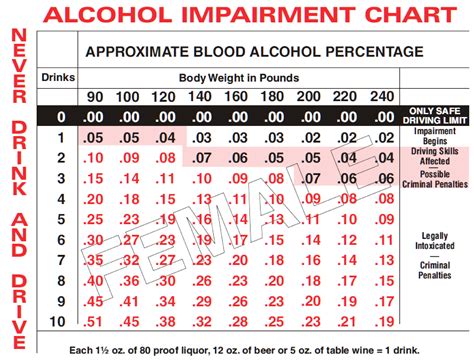
Understanding blood alcohol concentration (BAC) is vital for interpreting the results of alcohol blood tests. BAC is usually measured in grams of alcohol per 100 milliliters of blood or in grams of alcohol per 210 liters of breath. The legal limit for driving under the influence (DUI) varies by jurisdiction but is commonly set at a BAC of 0.08%. However, it's essential to note that impairment can occur at lower BAC levels, and some countries or states have implemented zero-tolerance policies for drivers, especially for young or novice drivers.
Factors Influencing BAC
Several factors can influence an individual's BAC, including the amount of alcohol consumed, the time frame over which it was consumed, body weight, and the presence of food in the stomach. For example, consuming alcohol on an empty stomach can lead to faster absorption and higher peak BAC levels compared to consuming alcohol with food. Additionally, individual tolerance to alcohol can affect how quickly a person becomes impaired, even if their BAC is below the legal limit.How Alcohol Blood Tests Work
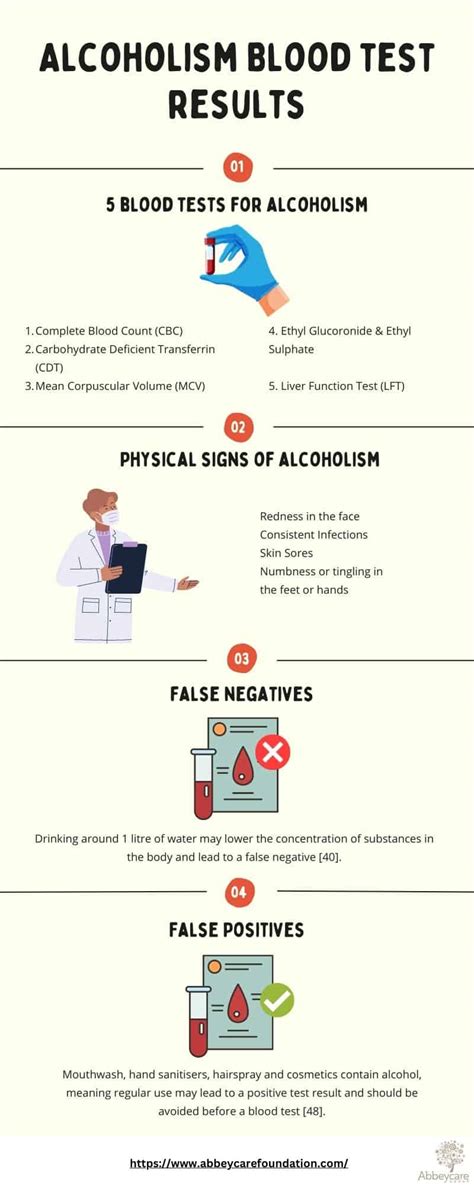
Alcohol blood tests work by analyzing a blood sample for the presence and concentration of ethanol, the type of alcohol found in alcoholic beverages. The most common method of analysis is gas chromatography, which separates and measures the components of the blood sample. The results are then compared to a calibration standard to determine the BAC. It's worth noting that while blood tests are considered highly accurate, there can be variability depending on the laboratory and the specific analytical technique used.
Types of Alcohol Blood Tests
There are primarily two types of alcohol blood tests: whole blood tests and serum or plasma tests. Whole blood tests measure the alcohol concentration in the entire blood sample, including both the liquid portion (plasma) and the solid portion (cells). Serum or plasma tests, on the other hand, measure the alcohol concentration only in the liquid portion of the blood. The choice between these types of tests can depend on the specific requirements of the testing situation and the preferences of the laboratory conducting the analysis.Legal Implications of Alcohol Blood Tests
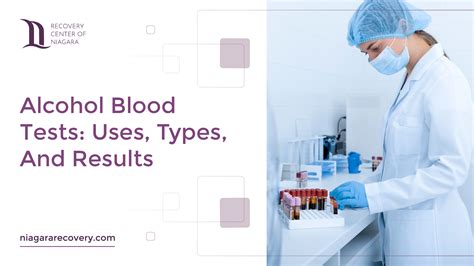
The legal implications of alcohol blood tests are significant, particularly in the context of driving under the influence (DUI) cases. If an individual's BAC is found to be above the legal limit, they can face penalties ranging from fines and license suspension to imprisonment, depending on the jurisdiction and the circumstances of the case. It's also important to recognize that alcohol blood tests can be used in other legal contexts, such as in cases of alcohol-related accidents or as part of employment screening.
Challenging Alcohol Blood Test Results
In some cases, individuals may choose to challenge the results of an alcohol blood test, especially if they believe the test was not conducted properly or if there were issues with the sample collection or analysis. This can involve hiring an attorney who specializes in DUI cases and has experience with the intricacies of alcohol blood testing. The attorney can help identify potential flaws in the testing process and argue on behalf of the defendant to have the results excluded from evidence or to negotiate a more favorable plea.Medical Uses of Alcohol Blood Tests
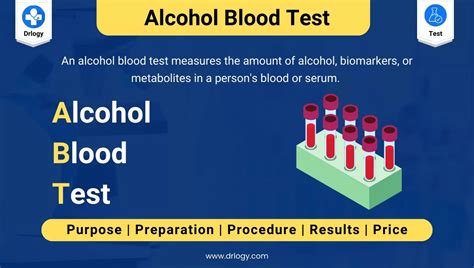
Beyond their legal applications, alcohol blood tests have medical uses, particularly in the diagnosis and treatment of alcohol-related health issues. For example, healthcare providers may use alcohol blood tests to assess patients who are suspected of alcohol poisoning or to monitor individuals undergoing treatment for alcohol dependence. These tests can provide valuable information about the patient's alcohol use and help guide treatment decisions.
Interpreting Test Results
Interpreting the results of an alcohol blood test requires consideration of several factors, including the individual's symptoms, medical history, and the timing of the test relative to alcohol consumption. Healthcare providers must also be aware of potential sources of error, such as contamination of the sample or interference from other substances. By carefully evaluating the test results in the context of the patient's overall clinical presentation, healthcare providers can make more accurate diagnoses and develop effective treatment plans.Preparation for Alcohol Blood Tests
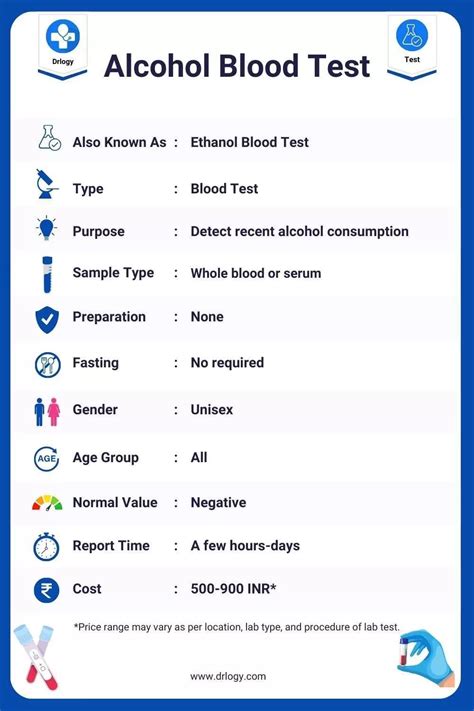
For individuals who are scheduled to undergo an alcohol blood test, preparation is key to ensuring accurate results. This includes avoiding alcohol consumption for a specified period before the test, as directed by the healthcare provider or laboratory. It's also essential to follow any specific instructions regarding food and drink consumption, as well as to disclose any medications or supplements that may interfere with the test. By being properly prepared, individuals can help ensure that their test results are reliable and useful for medical or legal purposes.
Common Misconceptions
There are several common misconceptions about alcohol blood tests that are worth addressing. For instance, some people believe that drinking coffee or taking a cold shower can help lower their BAC. However, these methods are ineffective and can potentially lead to dehydration or other health issues. Another misconception is that alcohol blood tests can detect alcohol use from days or weeks prior to the test. In reality, alcohol is typically metabolized and eliminated from the body within a few hours to a few days, depending on the amount consumed and individual factors.Future of Alcohol Blood Testing
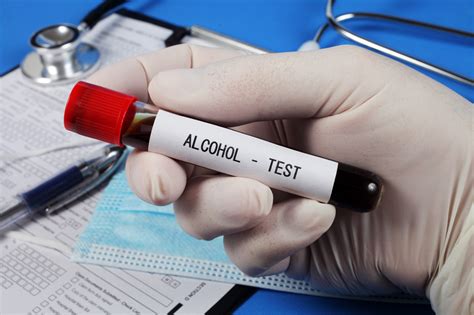
The future of alcohol blood testing is likely to involve advancements in technology and methodology, leading to more accurate, convenient, and non-invasive testing options. For example, researchers are exploring the use of breathalyzers that can detect not only alcohol but also other substances, such as marijuana. Additionally, there is interest in developing wearable devices that can continuously monitor an individual's BAC, providing real-time feedback and potentially reducing the risk of alcohol-related accidents.
Emerging Technologies
Emerging technologies, such as nanotechnology and biosensors, are being investigated for their potential to improve alcohol blood testing. These technologies offer the promise of highly sensitive and specific detection of alcohol, as well as the ability to monitor other biomarkers related to alcohol use. As these technologies continue to evolve, they may become integral components of alcohol blood testing, enhancing our ability to detect and manage alcohol-related issues.Conclusion and Final Thoughts

In conclusion, alcohol blood tests play a critical role in both legal and medical contexts, providing valuable information about an individual's alcohol use and impairment. By understanding how these tests work, their limitations, and their applications, individuals can better navigate situations where alcohol blood testing is involved. Whether it's for legal, medical, or personal reasons, being informed about alcohol blood tests can help individuals make more informed decisions and promote responsible alcohol use.
As we move forward, it's essential to continue advancing our knowledge and technologies related to alcohol blood testing. This includes developing more accurate and convenient testing methods, as well as improving our understanding of the complex factors that influence alcohol use and impairment. By working together, we can create a safer, healthier environment for everyone, where the risks associated with alcohol use are minimized, and individuals can make informed choices about their alcohol consumption.
We invite you to share your thoughts and experiences with alcohol blood tests in the comments below. Your insights can help others better understand the importance and implications of these tests. Additionally, if you found this article informative and helpful, please consider sharing it with others who may benefit from this information. Together, we can promote a culture of responsible alcohol use and support individuals in making informed decisions about their health and well-being.
What is the legal limit for blood alcohol concentration (BAC) in most jurisdictions?
+The legal limit for BAC varies by jurisdiction but is commonly set at 0.08%.
Can alcohol blood tests detect alcohol use from days or weeks prior to the test?
+No, alcohol is typically metabolized and eliminated from the body within a few hours to a few days, depending on the amount consumed and individual factors.
What factors can influence an individual's blood alcohol concentration (BAC)?
+Several factors can influence BAC, including the amount of alcohol consumed, the time frame over which it was consumed, body weight, and the presence of food in the stomach.
